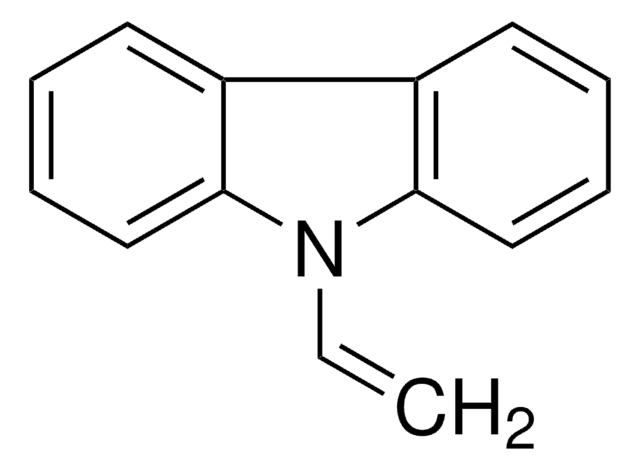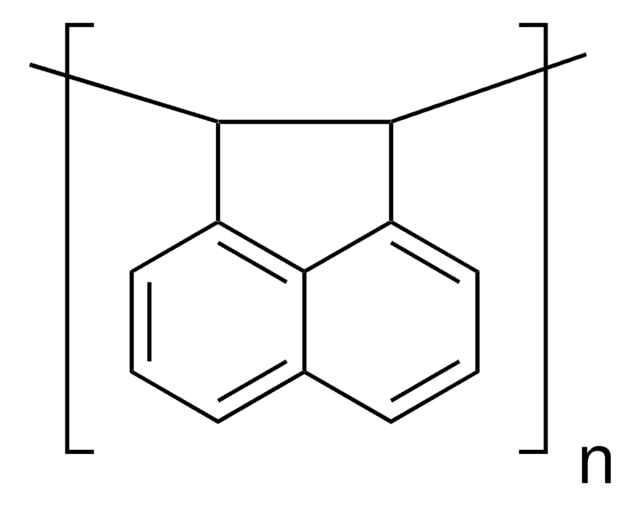182605
Poly(9-vinylcarbazole)
average Mw ~1,100,000, powder
Synonym(s):
PVK
About This Item
Recommended Products
form
powder
Quality Level
mol wt
average Mw ~1,100,000
refractive index
n20/D 1.683
transition temp
Tg 220 °C
density
1.2 g/mL at 25 °C (lit.)
Orbital energy
HOMO 5.8 eV
LUMO 2.2 eV
OLED Device Performance
ITO/PEDOT:PSS/PVK/PFO:Ir(btpy)3 (5 wt%)/Ca
ITO/PEDOT:PSS/PVK:FIr6 (10 wt%)/TPBI/CsF:Al
ITO/PEDOT:PSS/PVK:Ir(mppy)2 (6 wt%)/Bphen/LiF:Al
InChI
1S/C14H11N/c1-2-15-13-9-5-3-7-11(13)12-8-4-6-10-14(12)15/h2-10H,1H2
InChI key
KKFHAJHLJHVUDM-UHFFFAOYSA-N
Looking for similar products? Visit Product Comparison Guide
Related Categories
General description
Application
Storage Class Code
11 - Combustible Solids
WGK
WGK 3
Flash Point(F)
Not applicable
Flash Point(C)
Not applicable
Choose from one of the most recent versions:
Already Own This Product?
Find documentation for the products that you have recently purchased in the Document Library.
Articles
LEPs enable a wide range of important applications including sensors, flexible LED displays and lighting devices, optical pump lasers, and potentially polymer diode lasers.
LEPs enable a wide range of important applications including sensors, flexible LED displays and lighting devices, optical pump lasers, and potentially polymer diode lasers.
LEPs enable a wide range of important applications including sensors, flexible LED displays and lighting devices, optical pump lasers, and potentially polymer diode lasers.
LEPs enable a wide range of important applications including sensors, flexible LED displays and lighting devices, optical pump lasers, and potentially polymer diode lasers.
Our team of scientists has experience in all areas of research including Life Science, Material Science, Chemical Synthesis, Chromatography, Analytical and many others.
Contact Technical Service







![Poly[2-methoxy-5-(2-ethylhexyloxy)-1,4-phenylenevinylene] average Mn 40,000-70,000](/deepweb/assets/sigmaaldrich/product/structures/344/488/b8f8179d-3970-4deb-a754-adda88cdb36f/640/b8f8179d-3970-4deb-a754-adda88cdb36f.png)